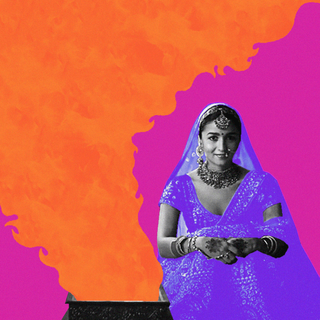WhatsApp is currently developing a “Communities” feature, which will allow admins of groups to create smaller groups — or “inner circles,” if I may — within larger groups on the messaging application.
“So, you mean more inner circles I won’t be a part of?” reads an Instagrammer’s reaction to the news. In a way, it pretty much sums up our inherent need to be a part of people’s “inner circles.”
According to The Verge, WhatsApp’s feature might be “similar to how channels are arranged beneath an umbrella Discord community.” It also seems reminiscent of “Close Friends” on Facebook and Instagram. The latter even tells you when you’re part of someone’s privileged “inner circle” on the app and can view stories they don’t want to share with everyone else. I remember seeing that “green star”-icon on the story of someone I follow making me feel kind of “special.” To see me on their exclusive-ish list on Instagram — even if we didn’t consider each other close friends in real life — felt like quite the dopamine rush.
This makes me wonder, is our fascination with being a part of people’s inner circles just an extension of FOMO — the fear of missing out — that social media has made us all-too-familiar with? Or is it something else?
Related on The Swaddle:
‘The Social Dilemma’ Told Us What We Already Knew. Then Why Was it So Shocking?
We may not actually care about being a part of the lives of many people we follow on social media. Yet, we choose to follow them, and more often than not, stay updated on what’s going on with their lives. Why? Research suggests that people are twice as affected by losses as they are by gains. In fact, experts believe that to be the trigger for FOMO.
So, just like FOMO, our need to compulsively consume Instagram stories of people we barely know seems motivated not by what we gain from them, but from the fear of what we might potentially lose if it disappears before we have had a chance to check it.
Basically, I’m worried I’ll never find out which restaurant my ex-colleague (whom I continue to dislike) went to on her Goa vacation; which city my school friend (whom I don’t talk to anymore) is moving to; which TV show my favorite film critic is recommending; what the drunk stranger I exchanged contact details with, in a women’s washroom, is wearing for her mehndi ceremony. The list is endless. And my reasons for its existence can seem baseless.
But as author Mark Manson wrote: “I wasn’t motivated by the joy of seeing something great. I was motivated by the fear of not seeing something great.”
Moreover, as human beings, we tend to have an innate emotional need to belong, or be “affiliate[d] with and be accepted by members of a group.” It makes us feel socially accepted. Being denied that, can make people feel lost and alone. “Humans have a fundamental need to belong. Just as we have needs for food and water, we also have needs for positive and lasting relationships… This need is deeply rooted in our evolutionary history,” C. Nathan DeWall, a psychologist at the University of Kentucky in the U.S., had explained.
Related on The Swaddle:
Why the Social Media Blackout Felt Like the Apocalypse
By extension, the idea that members of a group we consider ourselves a part of would like to exclude us from part of their lives can make one feel “left out,” and perhaps, “rejected.” As we may know from personal experiences — like being picked last for a team, or being excluded from a dinner plan with co-workers, or not being invited to a game night with friends — social rejection feels terrible even for people with debilitating social anxiety. It triggers the insecurity best summed up as: “Nobody likes me.” It even goes on to validate that insecurity: “I know nobody likes me.
“Human beings are a social species, and yet, every one of us feels, on some level, like we just don’t fit in with everyone else,” an article on PsychAlive states. A 2014 study from the U.K. suggests that one in 10 people felt they didn’t have a single close friend, and one in five admitted to feeling unloved. The insecurity is widespread.
In a nutshell, our fascination with belonging in “inner circles” appears to be an extension of our evolutionary need to belong, our collective insecurity, and well, FOMO.
And now, WhatsApp is gearing up to exploit every one of those aspects and serve us a new feature — just like Facebook and Instagram did. So, are you ready to up your FOMO?




